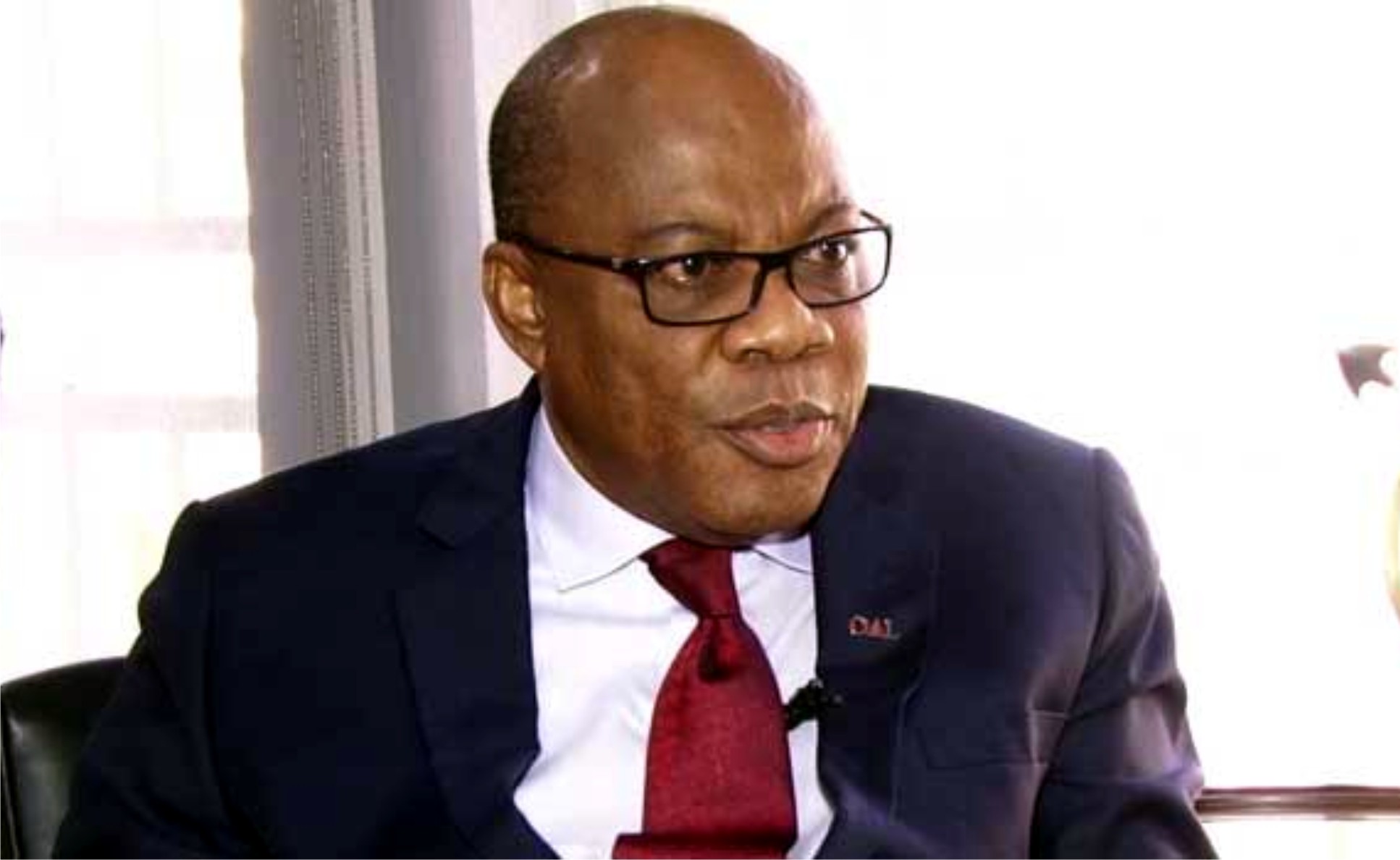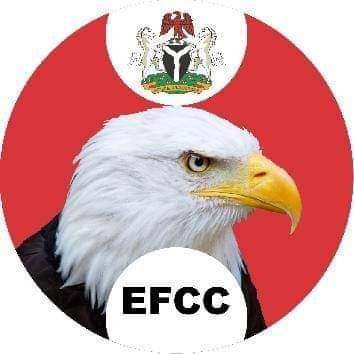Politics
Apply Aburi Accord, Divide Nigeria Now – Agbakoba Tells Buhari

Former President of the Nigerian Bar Association, NBA, and human rights activist, Olisa Agbakoba (SAN), has told President Muhammadu Buhari to divide the country into eight regional structures.
Agbakoba, one of the greatest heroes of democracy in Nigeria, noted that there are so many unclear issues in Nigeria about how people of the country want to organise themselves and how they want to live together.
The senior lawyer told reporters at the weekend that insecurity and other serious issues facing the country “can’t [be] fully arrested,” if the central government remains so strong as it is now.
He added: “This is because community policing or state policing is a tactical tool to deal with the problem, but the strategic tool is the bigger question of the national question.
“There are so many unclear issues in Nigeria about how we want to organise ourselves, how we want to live together, this is what some people have called the restructuring question, some call it the national question, but I call it devolution of powers question.
“Whatever it’s called that is the central issue that needs resolution so that even if you use tactical tools like community policing, but the bigger issue remains then I don’t know if we can resolve it.
“What Nigeria needs is space, there are diverse ethnicities and they are living in such close proximity that one ethnic community is in the face of the other with counter-cultures, counter-religious beliefs and that is not healthy. Even in America in spite of all their advanced democracy, they take care of diversities.
“So, I think if I were to advise the president, for instance, the first thing to do is create space…,identify the ethnic regionalities, create eight big blocs, even though we have 6 to make it 8.
“And then I will give them the power to do things at their own local level, it’s called the principle of subsidiarity; let them work at their own local level. Subsidiarity is where people engage themselves at the local level such that you find in Wales, Scotland, Ireland and England.
“Part of the challenge they had when they were living closely was to create an act of settlement of 1705, that was when peace began to come and each of the regions recognised themselves.
“They all had their own prime ministers and they call them first ministers, so the prime minister of the UK is the one we see internationally, but on local matters like school, refuse collection, education, agriculture, employment, health issues, it’s local.
“So, imagine where eight of the regional structures in Nigeria were fending for themselves at their local level and not depending on federal allocation from Abuja, things will be different.
“Immediately they will take control of what is around them, they will create state police, they will create the relevant security apparatus to deal with any threat, therefore, you don’t need one Chief of Army Staff, and they don’t need one Inspector General of Police to be running around entire Nigeria.
“For instance…say in the South-south region, they will have all the relevant apparatuses to deal with whatever situation that they need to survive as a region.
“They could have courts; they might like to have a Supreme Court of the South-south where cases end in the Supreme Court of the South-south, so they do not have to go to the Supreme Court of Nigeria because the Supreme Court of Nigeria has no business dealing with issues arising from there.
“That is the kind of space I think that should be paramount in the issue concerning where Nigeria is heading to.
“Because that discussion is not on the table, all these ethnic issues flare up as major national insecurity challenge. So, that is what I will do or suggest if I had the opportunity to advise on it. The Federal Government is too strong”.
“The Federal Government is actually not a Federal Government, ours is a unitary government because the states have no power on the legislative list so there are 68 items on the Exclusive List and as the name implies in Exclusive List only the Federal Government handles it.
“There is 30 on the Concurrent List, concurrent is between the federal and the state to legislate, but if the Federal Government legislates then pursuant to what is called the doctrine of covering the field the state is not allowed to do anything. In other words, the states have no legislative authority, that creates a problem.
“Why should the Federal Government be dealing with Universal Basic Education for primary schools? What is the Federal Government responsibility with that? I don’t understand.
“What is the Federal Government responsibility with setting up a JAMB process so that you equalize educational activities, but if my grandchild from Anambra scores 282, but my friend’s grandson from Zamfara scores 100, my friend’s grandson gets into the university, but my own does not get in. Why don’t you simply say ….look each region can just organize itself and take your examination?
“So, it is this centrifugal federalism, that means federalism that has a pyramid that has only one leader that is our problem.
“We just have to blast the structures and allow regional leaders as we had under the 1960 Constitution. So, when you have regional leaders you will have people who will like to play regional politics or regional law.
“There is no reason, for instance, in my own profession the eight regions I propose should not be awarding SAN to their best lawyers. Why must it only be Abuja? In the UK, the SAN in England is different from the SAN in Scotland.
“So, the formula that worked for Nigeria was to recognize the differences and I think the best example of the agreements that we can apply is the Aburi Accord.
“The Aburi Accord recognized that Nigeria’s problems were as a result of our diversity not being well managed. We need to manage our diversity that is the way we can move forward.”
Politics
Rivers Political Crisis: PANDEF Urges Restraint, Mutual Forbearance

Accordingg to the statement, the Board and National Executive Committee of PANDEF, noted with very grave concern the recent spate of political developments in Rivers State.
“Regrettably, these developments have now degenerated into the decision of the Rivers State House of Assembly to commence impeachment proceedings against the governor and deputy governor.
“This is a deeply disturbing situation that demands urgent attention in order to forestall further escalation and breakdown of law and order.
“This concern is heightened by the critical importance and strategic centrality of Rivers to the Niger Delta region and to the broader socio-political stability and economic wellbeing of Nigeria as a whole”, the statement said.
The Forum called on all parties involved in the resurgent political imbroglio to sheathe their swords and embrace peace.
“This should be guided by the principles of give-and-take, dialogue, tolerance, and political equanimity.
“All stakeholders must place paramount importance on peace, development and the welfare of the people of Rivers.
“We must now focus squarely on good governance and development of the state,” the Forum said.
PANDEF commended President Bola Tinubu, the leadership of the All Progressives Congress (APC), respected elders of Rivers State, and other well-meaning Nigerians for their previous and ongoing efforts aimed at restoring peace and stability in the state.
Politics
Wike’s LGAs Tour Violates Electoral Laws — Sara-Igbe

Speaking in an interview on Saturday, January 10, Chief Sara-Igbe alleged that the minister had flouted regulations governing the commencement of electioneering campaigns by moving from one local government area to another to galvanise political support.
According to him, the action amounted to a clear breach of electoral guidelines being carried out with a troubling sense of impunity that could undermine the rule of law.
“Wike has violated the electoral laws of campaigning by going from local government to local government to talk to the people. He travelled from one local government to another. As a result of his visits to local government areas, he has broken election regulations and continues to do all these things without fear of repercussions”, Chief Sara-Igbe said.
The remarks came as Chief Wike was set to round off a state-wide “thank-you” tour that covered all 23 local government areas of Rivers State.
Although the minister had described the tour as an appreciation visit following support for President Bola Tinubu in the 2023 general elections, critics say the engagements have assumed an overtly political character.
Observers note that during several stops, including recent visits to Andoni and Bonny local government areas, the minister rallied supporters across party lines under what he termed a “Rainbow Coalition,” a move widely interpreted as part of a broader political strategy.
During these engagements, Chief Wike was also reported to have made remarks perceived as a veiled challenge to the authority of Governor Siminalayi Fubara, while repeatedly referencing the 2027 elections and urging supporters to prepare to “correct the mistake” of 2023.
Chief Sara-Igbe warned that allowing such activities to continue unchecked could erode public confidence in Nigeria’s electoral process and called on relevant authorities to enforce existing laws without fear or favour.
Politics
EFCC Alleges Blackmail Plot By Opposition Politicians

The Commission, in a statement on Wednesday, claimed that there were plans by the same group to escalate a smear campaign against its Chairman, Ola Olukoyede, to frustrate ongoing investigations and prosecutions involving prominent individuals.
The statement endorsed by the agency’s spokesman, Mr Dele Oyewale, claimed that the action was intended to distract the Commission through unfounded allegations of political bias in the discharge of its duties.
The EFCC warned that it would not stand by and watch “those recruited into this ignoble enterprise” or allow any attempt to derail it from “the patriotic task of improving public accountability in Nigeria.”
The Commission made it clear that those recruited into this venture were under close watch, adding that it would not tolerate any attempt to distract it from the patriotic task of improving public accountability in Nigeria.
“The EFCC reiterates its non-political stance in all its activities. Facts on the ground clearly show that any political actor belonging to the ruling party or opposition party, with corruption baggage, has no hiding place from the operational radar and dynamics of the Commission.
“As a matter of fact, several strong members of the ruling and opposition parties are either facing trial before the courts or being investigated by the Commission.
“It is needful that Nigerians appreciate the fact that the Commission is keeping faith with its Establishment Act in all its operations.
“Therefore, the Commission reiterates its commitment to justice, without fear or favour, in the fulfilment of its mandate,” the statement pointed out.
-

 Politics3 days ago
Politics3 days agoEFCC Alleges Blackmail Plot By Opposition Politicians
-
Business3 days ago
AFAN Unveils Plans To Boost Food Production In 2026
-

 Sports3 days ago
Sports3 days agoJ And T Dynasty Set To Move Players To Europe
-
Business3 days ago
Industrialism, Agriculture To End Food Imports, ex-AfDB Adviser Tells FG
-
Politics3 days ago
Datti Baba-Ahmed Reaffirms Loyalty To LP, Forecloses Joining ADC
-
Politics3 days ago
Bayelsa APC Endorses Tinubu For Second Term
-
Business3 days ago
Cashew Industry Can Generate $10bn Annually- Association
-

 Entertainment3 days ago
Entertainment3 days agoAdekunle Gold, Simi Welcome Twin Babies

